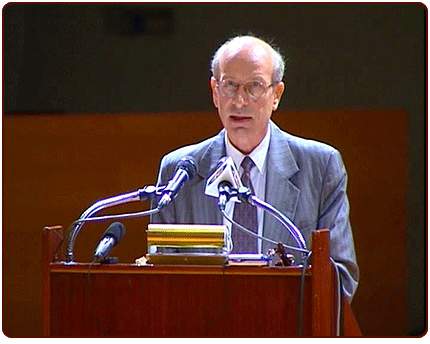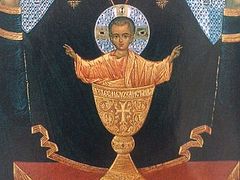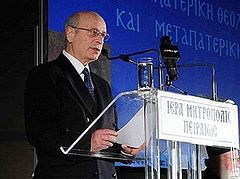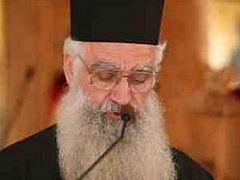Source: Aktines
February 12, 2016
With a new letter addressed to the Hierarchs of the Church of Greece, Dr. Demetrios Tselengides, Professor of the School of Theology at the Aristotle University of Thessaloniki, stresses and highlights the problematic parts of the "Organization and Working Procedure of the Holy and Great Council," as well as other documents:
Your Beautitude, holy President of the Holy Synod,
Your Eminences, holy hierarchs,
In view of the imminent convocation of the Holy and Great Synod, I would respectfully once again like to put before you a few thoughts of a theological nature, which I hope might be of use.
From research I conducted, I was unpleasantly surprised to discover that the Church of Greece—from 1961, at which point the Pre-conciliar Pan-Orthodox Conferences for the aforementioned Great Synod began—has not addressed the decisions of these conferences on the level of the Hierarchical Synod. The consequence of this is our arrival at the unfortunate ecclesiastical situation of today.
We are, that is, about to make ecclesiastical decisions on critical issues of a Great Pan-Orthodox Synod, but for this there is a serious lack of synodical treatment from the Local Synod of Hierarchs, something which is, by the way, anticipated by the Pre-conciliar Conferences.
At this moment we find ourselves ecclesiastically at the penultimate stage of the final decisions of the Great Pan-Orthodox Synod. I believe that things—despite their exceptional severity—are still healable. As is well-known, the synodical system of our Orthodox Church comprises a Spirit-led ecclesiastical operation, not only with respect to matters of administration and Her life, but also to the precise expression of Her dogmatic teaching.
More precisely, I believe that the synodical shortcomings of the past fifty-five years most certainly can be corrected now, provided the decisions of the forthcoming Synod of Hierarchs, in connection with the subjects of the forthcoming Great Synod of Orthodoxy, will be in agreement with the self-awareness of the Church and the Spirit-led experience of Her sacred Tradition.
Also something else of relevance and exceptional severity. I carefully read the recently published, “Organization and Working Procedure of the Holy and Great Council” and have to put before you an observation of mine of a theological-dogmatic character.
In particular, Article 12, on the subject of “Voting and Approval of Texts,” makes the following important note:
The voting on the results of a discussion or review of a Council’s text on an agenda item:
1. shall be effected by autocephalous Orthodox Churches, not by each particular member of the delegations represented at the Council, in accordance with the unanimous decision of the Meeting of the Primates of Orthodox Churches;
2. the voting of a Church at the Council, not a member of a delegation, does not exclude the possibility for one or a few hierarchs in the delegation of a particular autocephalous Church to take a negative position towards introduced amendments or a text in general. The fact of disagreement shall be registered in the Minutes of the Council;
3. the evaluation of such disagreement is an internal affair of that Church to which the hierarchs belong. The Church may vote from the principle of internal majority expressed by its primate and for this reason it should be accorded the place and time necessary for considering this issue within the delegation.
We see in this article that the consensus of the Great Synod is limited to one vote for each Local Autocephalous Church. Individual disagreements—should it happen that these constituted a minority within the Local Churches—are left aside as “their internal affair,” something which is ecclesiologically unacceptable to the particular Pan-Orthodox Synod, when, indeed, the disagreement is over a subject of a doctrinal nature. And this is very likely to be the case. For example, the subject of the self-awareness and identity of the Church, which is dealt with in the document: “Relations of the Orthodox Church with the rest of the Christian World” is a matter of ecclesiology; in other words, eminently theological. Consequently, it is not theologically permissible for a document recommended for adoption to, on the one hand, essentially recommend the Protestant “branch theory”—legitimizing by the acceptance thereof the existence of many Churches with many different doctrines—while, on the other hand, the “Rules of Organiation and Operation of the Synod” in effect ignores the inevitable minority vote of hierarchs of individual Local Churches and does not take into account the theological concerns of their episcopal conscience.
And here arises the very appropriate theological-dogmatic question: How will the one faith of the Church, “with one mouth and with one heart” be confessed in this case? How will the fathers of the Synod be able to say, “it seemed good to the Holy Spirit and to us?” How will they demonstrate that they have “the mind of Christ,” as did the God-bearing Fathers of the Ecumenical Councils of the Church?
Your Beatitude,
When it comes to matters of dogma, as is well known, the truth is not found in the majority vote of the hierarchs of the Synod. The truth is in itself a majority, for in the Church the truth is a Hypostatic reality. For this reason, whoever disagrees with it is cut off from the Church, and are deposed and excommunicated as appropriate. The Holy and Great Synod is not permitted to leave to lesser synodical bodies a subject of such exceptional severity as the inevitable disagreement of the minority vote of bishops over matters of dogma. As the highest synodical body, it is required to address this issue directly, otherwise there is a real danger of schism in the Church, precisely at the moment when this Great Synod aspires to reaffirm the visible unity of our Church.
With deepest respect,
I kiss your right hand,
Demetrios Tselengides
Professor of the School of Theology of Aristotle University of Thessaloniki




